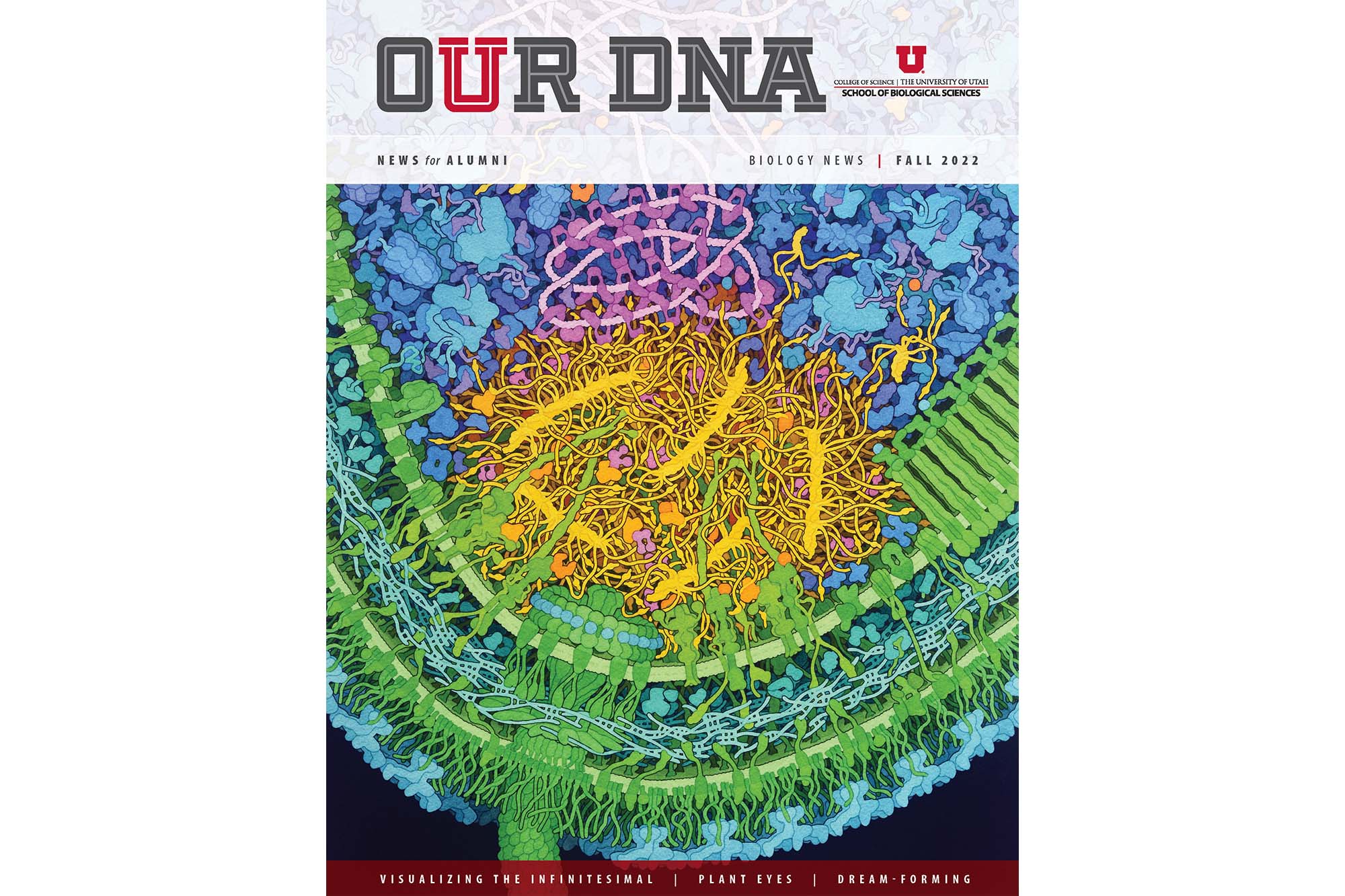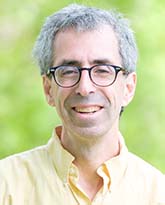
Hot off the press! Fall 2022 issue.
Read the full issue of OUR DNA, the magazine of the School of Biological Sciences, including the Letter from Director Fred Adler.
LETTER FROM THE DIRECTOR
Challenge of Our Time

When I stepped into the role of Director of the School of Biological Sciences, I was fortunate to build upon the successful leadership of outgoing co-directors Leslie Sieburth and Neil Vickers. Despite the challenge of filling their four rather large shoes, the School was in a strong place with seven exciting new faculty, firm links between teaching and research, enhanced unity across the wide range of disciplines we gather under the umbrella of “biology,” and an official end to the pandemic.
As we know, however, the virus SARS-CoV-2 and the disease it causes, COVID-19, are still very much with us. The challenges of the pandemic have not only taught us much about the resilience and fragility of our society but reminded everyone of the importance of biology in our lives. The rise of new variants is a living illustration of evolution in action; the overnight identification and sequencing of the virus and resulting PCR testing shows the power of modern genetic methods; the vaccines illustrate both the power of new technologies and the complexity of the immune system; and the spread of the disease highlights the importance of mathematical modeling for understanding, prediction, and control.
The origins of the virus from an animal host exemplify what is perhaps the central challenge of our times—the link between environmental change and human health. As we alter the planet, we interact with novel species and transform the way that existing species interact with each other and with us. The warming climate allows mosquitos that transmit tropical diseases to spread to new areas.
But new diseases are just one example of the challenges that global environmental change poses for human health. Earlier spring and later fall is extending the allergy season. Heat and drought promote wildfires that pollute the summer air, harm our lungs, and drive people indoors. Excessive time spent indoors creates psychological stresses already exacerbated by disease lockdowns and concerns about the future of the planet.
Faced by these pragmatic problems, how does basic science contribute to taking on this central challenge of our times? I see four key roles for SBS. First, basic research makes fundamental discoveries with unexpected consequences. The recent “Golden Goose” award to Distinguished Professor Toto Olivera and his lab is a perfect example—the study of some obscure predatory snails has advanced our understanding of neurons and led to development and patenting of new non-addictive painkillers.
Second, in the hands of SBS researchers, basic research and applied research go hand-in-hand. Understanding how plants respond to stress opens the door to breeding drought-tolerant plants. Understanding how mosquitos interact with bacteria reveals ways to control these disease vectors.
Third, as one of the largest majors on campus, SBS plays a central role in training the next generation of students in the knowledge and ways of critical thinking to find and implement solutions.
Finally, SBS provides the link between the world-class expertise in environmental science and health sciences of which the University is justly proud. The new Wilkes Center for Climate Science and Policy, led by SBS Associate Professor Bill Anderegg, opens up myriad opportunities for collaboration with our world class medical school.
As I like to say, we had two tools to fight the pandemic, our brains and our immune systems. Our brains are the only tool we have to address the challenges of our times, and it is the collective power of the thinking that characterizes the work in the School of Biological Sciences that gives me the greatest hope for the future.
Sincerely,

Fred Adler
You can read the full issue of OUR DNA and subscribe to this free, twice-yearly publication here.

